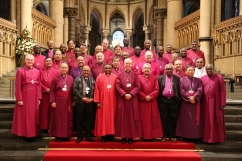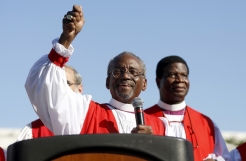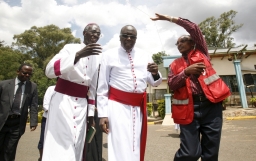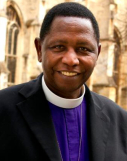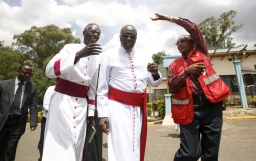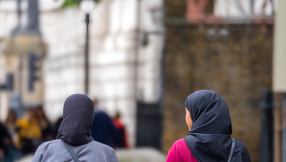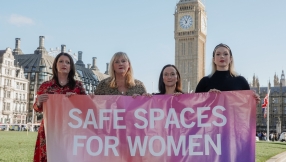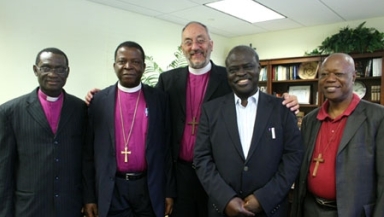
The Anglican Church of Nigeria has pleaded for "special status" in the worldwide church to allow it to maintain its stance on homosexuality.
Nigeria has also announced it is to boycott the next meeting of Anglican Church leaders, further deepening the split over homosexuality.
The Nigerian primate, Archbishop Nicholas Okoh, said the province, the largest in the worldwide Anglican Communion, will boycott next month's Anglican Consultative Council meeting in Lusaka, Zambia.
The Nigerians are angry that delegates from The Episcopal Church plan to attend the meeting and vote, in spite of having "consequences" imposed by the recent Primates Meeting over their approval of gay marriage and consecration of gay bishops.
In his strongly-worded statement, Archbishop Okoh pleads for a "special status" within the Anglican Communion for provinces that continue to uphold the traditional biblical standard on marriage and homosexuality.
He compares it to Prime Minister David Cameron's request for "special status" in the European Union for the United Kingdom.
And he accuses liberal provinces of using "subtle blackmail" to "coerce" conservative provinces such as his into joining the "straitjacket of the revisionists". He says: "Somehow, they are succeeding!"
Nigeria was one of the provinces that protested against the consecration of the gay American bishop Gene Robinson, that boycotted the 2008 Lambeth Conference and helped set up the Global Anglican Future Conference in Jerusalem that same year.
Nigeria has also broken communion with Canada and the United States over the issue, but attended the January Primates meeting in Canterbury in the hope of seeing discipline imposed on liberal provinces.
However, although some voting rights were withdrawn from the US church, Archbishop Okoh says the restrictions had turned out to be "hollow".
He says in the statement: "During the Canterbury meeting itself, the way and manner in which those who hold the orthodox view of human sexuality and marriage were spoken of by the authorities, and denounced as 'homophobic', left noone in doubt that we were in the wrong place. In fact, the authorities believe that patience was being exercised to enable the communion to bring up the scripture-believers gradually to embrace the homosexual doctrine."
He said the future for the orthodox was as a result uncertain.
"In summary, as long as we are now candidates for whom every opportunity in the Anglican Communion should be explored to gradually teach us to embrace the new sex culture, it will be unwise to deliberately walk into a well-prepared camp of recruitment, blackmail, indoctrination and toxic relationship."










